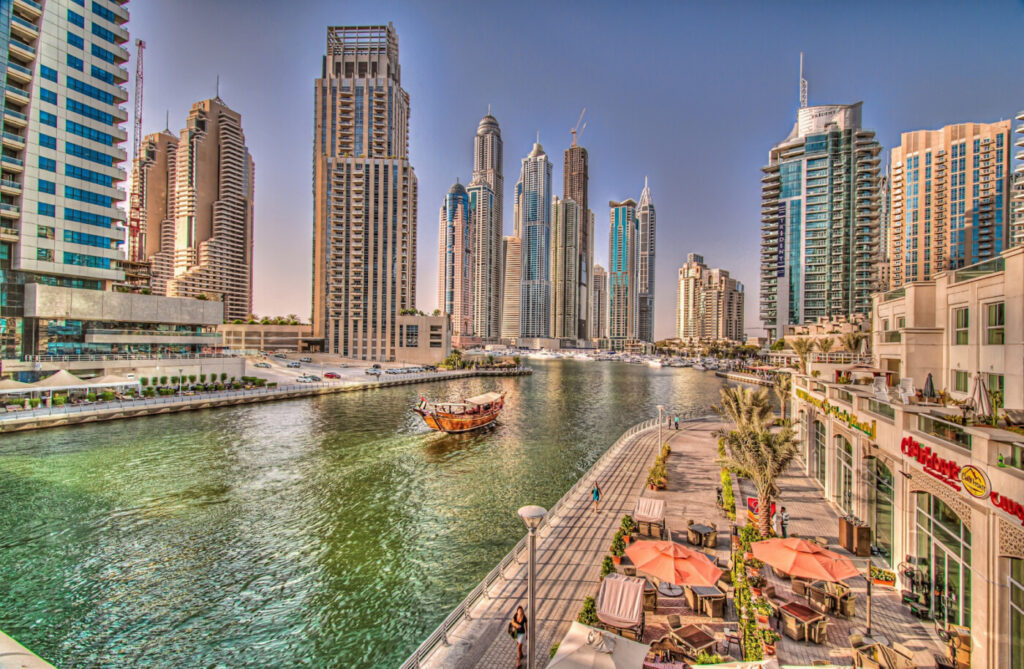
The UAE has an unspoken «tax paradise» status among entrepreneurs around the world: there can be zero taxes on profits, real estate, capital gains, and income of individuals.
In the UAE, all taxes are divided into federal and regional. In 2016, the Federal Revenue Authority (FTA) was established, which is responsible for collecting taxes for all seven emirates. But in practice, each emirate has its own tax decree and its benefits. The United Arab Emirates tax avoidance of most taxes for individuals and businesses.
To confirm the tax status in the UAE, a foreigner must obtain a residence visa and stay in the country at least 183 days a year. You also need to rent or buy housing in the UAE and apply on the website of the Federal Tax Service (FTA). The TIN will not be required.
READ: Sands and Skyscrapers: Unveiling the Enchantment of Dubai
The UAE does not have the following taxes for residents:
The absence of taxes on the income of individuals extends to freelancers and self-employed residents in the UAE.

In the UAE, tourists are charged additional taxes and fees. They are included in the cost of accommodation, services and entertainment. The amount of taxes depends on the emirate. As a rule, websites indicate the cost of housing without taxes. It happens that the final cost of the room is unaware of taxes tourists will find out when booking or even after settling in.
The UAE Ministry of Finance supports small businesses and start-ups without VAT and corporate tax, as well as free economic zones.
Free Economic Zones (FEZ), or Freezone, are areas within a city or emirate with favorable economic conditions for doing business. The boundaries of FEZ are visible on maps, as well as the main territory (mainland).
READ: Obtaining a Residence Permit in Dubai: Company Registration
There are about 45 free zones in the UAE. 21 are in the Emirate of Dubai, 4 in Abu Dhabi, 3 in Ras al-Khaimah, 2 in Sharjah and Fujairah, and 1 each in Ajman and Um al-Quwain. Each FEZ has its own specialization and features. Therefore, the choice of FEZ mainly depends on what your company does, as well as the availability of imports and exports, offices, and warehouses. The size of the authorized capital is also important.
Consider this example. You need to register a business associated with virtual clothing. The Dubai Silicon Oasis, the equivalent of Silicon Valley, can be used for this purpose. This FEZ specializes in high-tech and computer programs. The prerequisite is a start-up capital of $27,000.
In the free zone, you can rent a whole building or a couple of jobs in coworking: Unlike the main territory, when registering a business in FEZ there are no mandatory conditions for renting a room. When conducting business in the territory of other states, FEZ can be used as an investment hub and work without a physical office.
Common to all free zones – zero corporate tax. In some free zones, you can not pay corporate tax for 40-50 years. If your business is located in the free zone, you can retail only here. Registering a company in FEZ as a foreign citizen without the participation of the local partner.
With the help of the free zone, the UAE government has successfully attracted foreign investment since 1985 (when the first FEZ was established). Thanks to the free zones, the country’s economy is developing well and is less vulnerable to fluctuations in world oil prices.

Since June 2021, the UAE has facilitated the entry of a foreign investor for business. Now when the company was opened in the main territory (mainland) of the UAE most types of licenses removed the mandatory condition – that 51% owned by a UAE citizen.
READ: UAE Real Estate Investment Options: Useful Tips and More
Usually, the company has a nominal local partner with a 51% ownership share and a waiver in court.
When registering a business in the service sector (beauty salon, IT service, and so on) you need a local agent – a citizen of the Emirates, which performs the role of a liaison during the interaction with the government. These are not equity partners but rather outsourced agents.